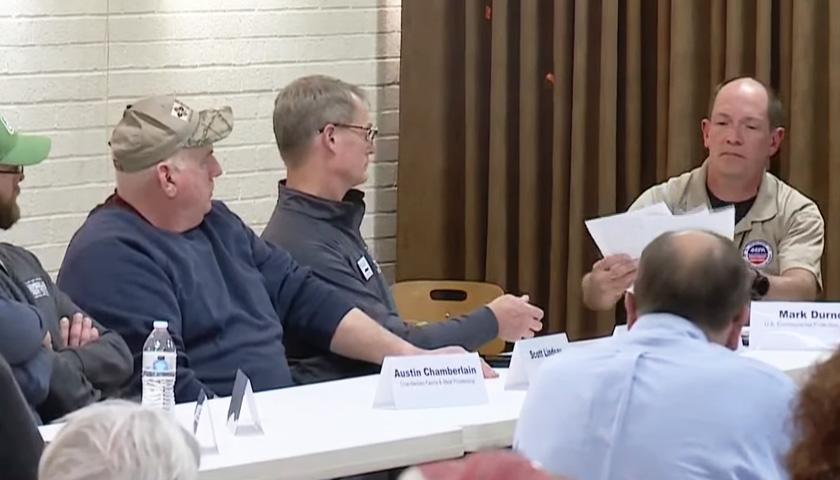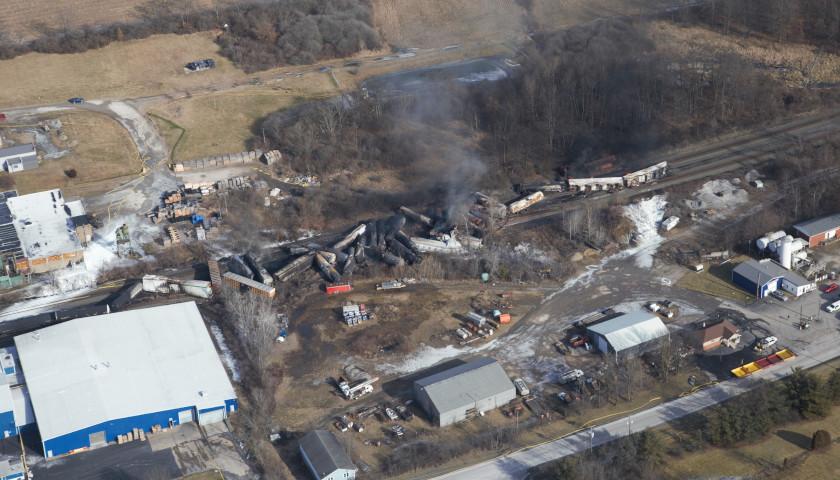Farmers from the East Palestine region met with officials from the Ohio Department of Agriculture (ODA) on Thursday to discuss the potential effects of last month’s Norfolk Southern hazardous train crash on their crops and livestock.
The conference was held in order to address any worries local farmers might have regarding the forthcoming planting season, even though the ODA has stated it has no reason to believe crops cultivated in the area would be harmful.
Director of the ODA Brian Baldridge stated that the department had contacted the local Farm Bureau extension to choose a few local farmers to participate in the conversation in order to guarantee that the discussion reflected regional views and issues.
As a farm owner himself, Baldridge claimed that the queries and worries he would have if his own farm had been in the impacted area, as well as by locating those solutions influenced the department’s response.
Federal, state, and local officials laid out their plan to test soil in locations most impacted by the derailment, which begins Friday. Testing will be conducted within a 1-mile radius around the derailment site and another approximate 1-mile radius southeast of the derailment site where the smoke plume traveled.
“We want to sample worst case conditions. Again, if we see ash or soot we’ll collect an individual discreet sample with that ash. If we don’t, we’ll collect a sample of the top one inch of soil to determine if soil has been impacted,” Mark Durno with the U.S. Environmental Protection Agency said.
According to Durno, results from the soil testing will take one to two weeks. Along with the Ohio State University, the Ohio Department of Agriculture is also working on a plan to test milk, eggs, and plant materials.
Local farmer Melissa Smith attended the meeting and said that she is appreciative of the collaborative efforts between the ODA, the United States Department of Agriculture, and the EPA along with county and local officials. However, she is anxious to view the results from the soil sampling.
“These are answers that we need to know now so that we can move on with our lives,” Smith said.
According to the ODA, animals from East Palestine brought to state labs showed no indications of exposure to any chemicals after the railway crash.
“There was nothing chemical related that we could link to, a lot of different things, but nothing that we could connect with what has occurred here. And that’s strictly the facts with what has come in to our lab,” Baldridge said.
Following their demise, the lab tested 10 animal species and one calf. Also, the counties of Trumbull, Mahoning, Stark, Portage, and Columbiana requested the presence of meat inspectors due to potential problems added by Baldridge.
“35 times inspectors have called in vets. Five cases, those carcasses were kicked out and none of those were, again, determined from the chemical side of any concerns that way,” Baldridge said.
Local farmer Austin Chamberlain said that the derailment and release of the hazardous chemicals has not impacted his family’s farm.
“I mean we have seen no livestock become ill. You know the feed that we were feeding that livestock all look just as good as it was beforehand,” Chamberlain said.
According to officials, there is no proof yet that the incident had any negative effects on the region’s agricultural system.
– – –
Hannah Poling is a lead reporter at The Ohio Star and The Star News Network. Follow Hannah on Twitter @HannahPoling1. Email tips to [email protected]
Photo “Ohio Department of Agriculture Meets with Farmers Following Train Derailment in East Palestine” by WKYC Channel 3.





